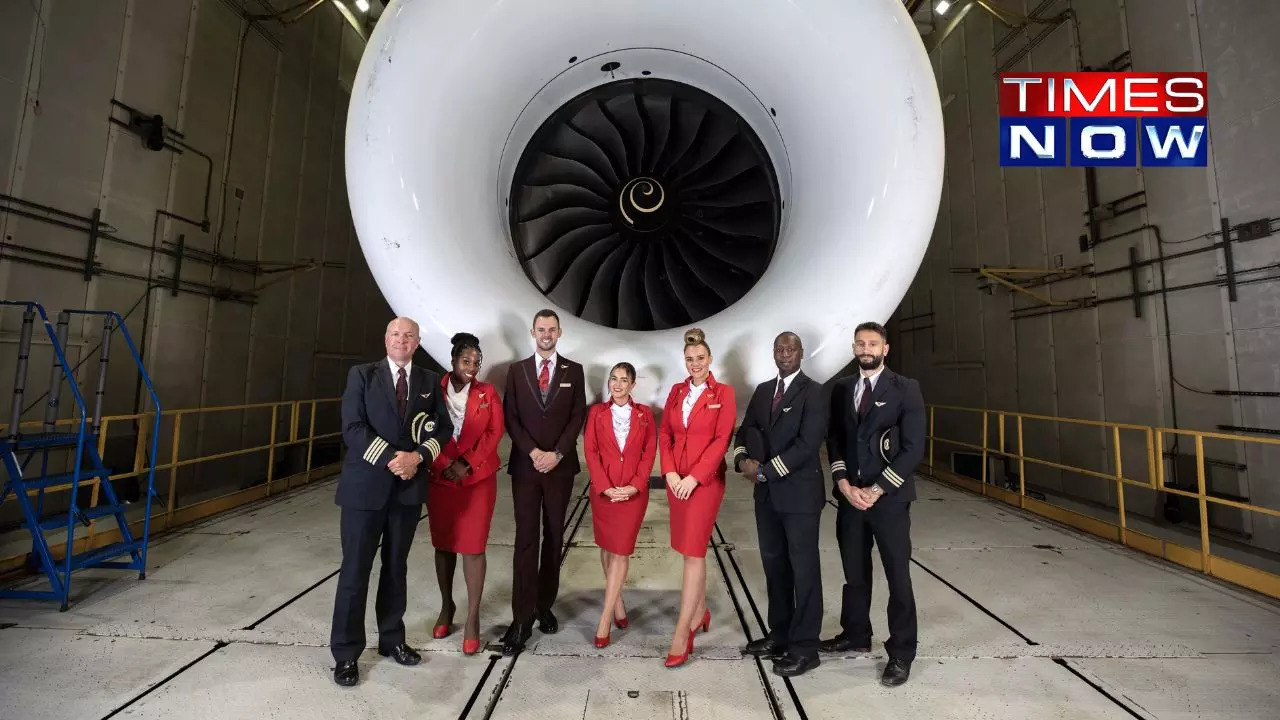Trending:
Could Your Next Flight Be Powered by Leftover Frying Oil? Virgin Atlantic Says Yes!
Virgin Atlantic's groundbreaking flight using 100% Sustainable Aviation Fuel marks a pivotal moment in the aviation industry's fight against climate change and its pursuit of a greener, more sustainable future.

Virgin Atlantic
KEY HIGHLIGHTS
- Virgin Atlantic's 100% SAF flight sets a new precedent in the aviation industry’s journey to decarbonisation.
- The historic flight promises a 70% reduction in carbon footprint, paving the way for guilt-free flying.
- UK Government invests ?53 million in SAF, signaling a major shift towards sustainable aviation.
Virgin Atlantic is poised to make history with its upcoming flight from Heathrow to JFK airport, powered entirely by Sustainable Aviation Fuel (SAF). This flight, lauded as the world’s “first 100% SAF flight,” represents a significant milestone in the aviation industry's roadmap to decarbonisation.
The Dawn of Guilt-Free Flying
Backed by a ?1 million investment from taxpayers' money, this flight aims to demonstrate that a green future for aviation is attainable. The use of SAF is expected to reduce the flight's carbon footprint by an impressive 70% compared to traditional jet-fueled planes, signaling a move towards "guilt-free" flying.
Government Backing for SAF Initiatives
The UK Government has shown a strong commitment to this green initiative, with a further ?53 million investment in SAF. This funding will support nine different SAF projects within the UK, as part of the Department of Transport’s strategy to make eco-friendly flying a reality.
Shai Weiss, CEO of Virgin Atlantic, emphasized the significance of the flight, stating, “The 100% Sustainable Aviation Fuel transatlantic flight will be a historic moment in aviation’s roadmap to decarbonisation.” He highlighted the need for radical collaboration and government support to create a UK SAF industry capable of powering every flight out of the UK with 100% SAF.
The Role of SAF in Decarbonisation
SAF is heralded as a key player in the aviation sector’s path to Net Zero 2050, with the potential to deliver more than 70% CO2 life cycle emissions savings. Currently, SAF constitutes less than 0.1% of jet fuel volumes, with fuel standards allowing only a 50% SAF blend in commercial jet engines. The upcoming flight aims to showcase SAF’s potential as a complete replacement for fossil fuels.
Despite the enthusiasm, some experts, like Cait Hewitt from the Aviation Environment Federation, express skepticism about the long-term feasibility of carbon-free planes. The aviation industry and its stakeholders continue to debate the effectiveness and scalability of SAF in addressing climate concerns.
A Step Forward in Eco-Friendly Aviation
Virgin Atlantic’s initiative to operate a 100% SAF flight is a bold step towards transforming the aviation industry. While challenges and skepticism remain, this flight could usher in a new era of sustainable air travel, significantly reducing the environmental impact of flying. The success of such initiatives is crucial not only for the industry but also for the broader global effort to combat climate change.
Trending:

TN Tech Desk author
Professionals & enthusiasts who write about politics to science, from economy to education, from local issues to national events and global affairs, t...View More
End of Article
Subscribe to our daily Newsletter!
Related News





EXCLUSIVE | WhatsApp's Head Of Product Reveals Whether Status Updates Will Get Ads In Future

Telegram Updates FAQ On Content Reporting After CEO's Detention, Clarifies Privacy And Moderation Policies

WazirX Hackers Launder $12 Million Via Tornado Cash, 43% Users May Lose Funds

Google Search Monopoly Case: Tech Giant In Trouble, Full Story In 5 Points

Google Set To Be Penalised For Illegal Monopoly In Search; Top Five Things Google Can Do Now








